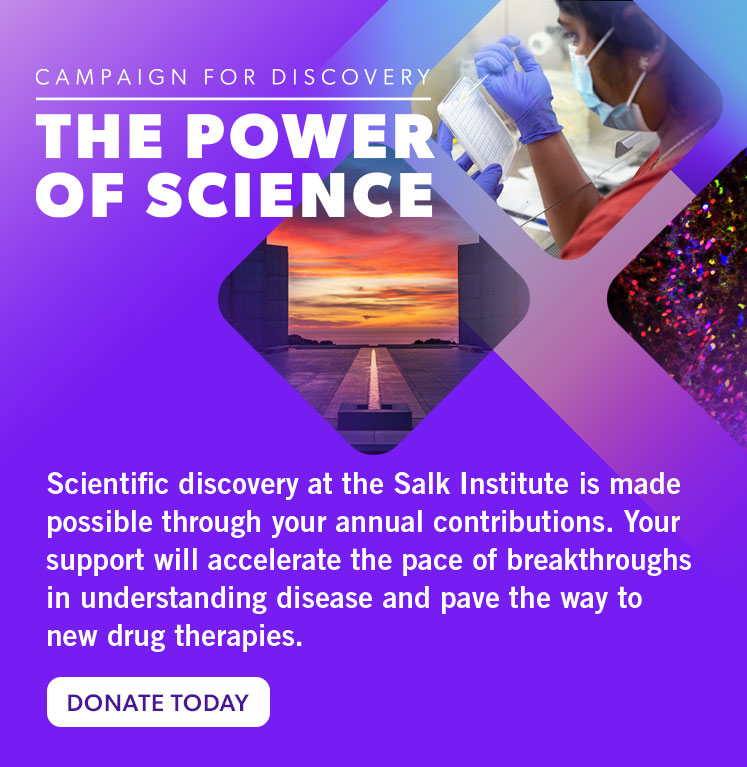Insights Jálin Johnson Enhancing equity and inclusion at Salk and beyond
Over the course of nearly 30 years dedicated to advocacy work, Jálin B. Johnson has served those in need and has given a voice to the voiceless—a principle that has guided her throughout her career. This commitment continues to shape her work as she steps into the role of director of Salk’s Office of Equity & Inclusion (OEI).
Advocacy in action
Working with the state of California and the California State University system in the mid-1990s, Johnson aided the unhoused, members of the military community, first-generation and international college students, and parents and caregivers striving to return to school. These early experiences in education advocacy led her to work with special needs students in K-12 education. She simultaneously pursued her own academic advancement by earning a master’s in business administration and a doctorate in education.
“The dual engagement in practice and academia enriched my perspective and expertise,” Johnson recalls. “Working within the special needs education community, combined with advocacy experience in higher education, formed a solid foundation for my roles in academia.”
Johnson later returned to higher education, advancing from assistant professor to full professor in business and organizational leadership, serving as a curriculum developer, doctoral mentor, dissertation chair, and member of an institutional review board. She also served in leadership as the vice chair of faculty personnel and, most recently, as the senior diversity officer and vice chancellor of Equity & Inclusion for the University of Massachusetts Global.
“At Salk, there is a collective desire to contribute, learn, and strengthen the community, with allies repeatedly asking how they can help. This engagement is not only refreshing but also provides an opportunity to understand what drives everyone.”
–Jálin Johnson
Creating inclusive spaces
Now at the Salk Institute, Johnson admires the community’s diversity of backgrounds and scientific expertise.
Johnson is drawing on this dynamic to shape her role at Salk, aiming to uplift the community’s values and ensure that the OEI team’s work successfully enhances the cultural environment.
She is quick to emphasize that advocacy work doesn’t live solely with her team—it is a collective community effort. She highlights the ongoing work of countless Salk colleagues, including the Office of People & Culture; the Development and Education Outreach teams; the Justice, Equity, Diversity, and Inclusion (JEDI) Council; and countless others who regularly collaborate to support the Salk community and our partners.
She recognizes the abundance of activities and programs the Institute has put in place to advance inclusion and community and is focused on creating an environment in which those who wish to be involved, and participate in JEDI-based efforts, may do so while maintaining a dedication to the science and innovation for which Salk is known. According to Johnson, achieving this level of enthusiasm and engagement will require consistent communication and time spent listening to and learning from knowledgeable peers.
Johnson is optimistic about these opportunities for connection and is looking forward to seeing them grow as she and her team work to enhance the Institute’s inclusive culture.
Diversifying career opportunities at Salk and beyond
Johnson celebrates the Institute’s recent strides toward diversifying STEM careers, with particular praise for the collective efforts of faculty and the OEI team in developing several programs that provide opportunities in research, education, and networking for undergraduate students, graduate students, and postdoctoral trainees from underserved communities, giving them a competitive advantage when they pursue the next steps in their careers. These programs are known as Rising Stars, Symposium for a Diverse Inclusive Scientific Community Offering a Vision for an Ecosystem Reimagined (DISCOVER), Summer Undergraduate Research Fellowship (SURF), and Salk Elevating Diversity in Graduate Education (EDGE).
“It was a true team effort from our faculty, Office of People & Culture, JEDI Council, and affinity groups, who have all galvanized the Salk community to show up and make these initiatives happen,” says Johnson.
“With this infusion of expertise, energy, and unwavering commitment, the future of our community and career opportunities at Salk looks promisingly diverse and inclusive.”
Featured Stories
 Getting to the root of Alzheimer’sSalk scientists are teaming up to understand brain aging. By collaborating across disciplines like genetics, neuroscience, and immunology, our researchers are uniquely positioned to lead us into a future of healthier aging and effective therapeutics for Alzheimer’s.
Getting to the root of Alzheimer’sSalk scientists are teaming up to understand brain aging. By collaborating across disciplines like genetics, neuroscience, and immunology, our researchers are uniquely positioned to lead us into a future of healthier aging and effective therapeutics for Alzheimer’s.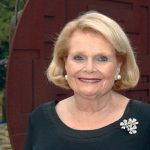 Salk mourns the loss of Joan JacobsThe Salk Institute lost one of its greatest supporters and one of San Diego’s most generous philanthropists when Joan Jacobs died on May 6, 2024, in La Jolla, California. She was 91 years old.
Salk mourns the loss of Joan JacobsThe Salk Institute lost one of its greatest supporters and one of San Diego’s most generous philanthropists when Joan Jacobs died on May 6, 2024, in La Jolla, California. She was 91 years old.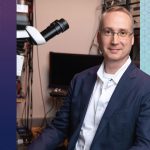 Axel Nimmerjahn— Widening perspectives through plane windows and microscope lensesInside Salk sat down with Nimmerjahn to hear how he went from curious child to world renowned researcher. Now a professor at Salk, he studies the central nervous system and designs new tools—like mini microscopes!—to study the system's various cell types.
Axel Nimmerjahn— Widening perspectives through plane windows and microscope lensesInside Salk sat down with Nimmerjahn to hear how he went from curious child to world renowned researcher. Now a professor at Salk, he studies the central nervous system and designs new tools—like mini microscopes!—to study the system's various cell types.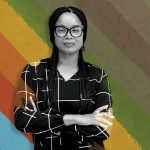 Jálin Johnson— Enhancing equity and inclusion at Salk and beyondOver the course of nearly 30 years dedicated to advocacy work, Jálin B. Johnson has served those in need and has given a voice to the voiceless—a principle that has guided her throughout her career. This commitment continues to shape her work as she steps into the role of director of Salk’s Office of Equity & Inclusion.
Jálin Johnson— Enhancing equity and inclusion at Salk and beyondOver the course of nearly 30 years dedicated to advocacy work, Jálin B. Johnson has served those in need and has given a voice to the voiceless—a principle that has guided her throughout her career. This commitment continues to shape her work as she steps into the role of director of Salk’s Office of Equity & Inclusion.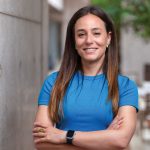 Lara Labarta-Bajo—An immunologist’s journey from Barcelona and ballet to the brainWhether dancing in Spain or surfing in San Diego, Lara Labarta-Bajo has always celebrated the power of the human body. Now a postdoctoral researcher in Associate Professor Nicola Allen’s lab at Salk, she studies how the immune system connects the body to the brain and how this relationship evolves as we age.
Lara Labarta-Bajo—An immunologist’s journey from Barcelona and ballet to the brainWhether dancing in Spain or surfing in San Diego, Lara Labarta-Bajo has always celebrated the power of the human body. Now a postdoctoral researcher in Associate Professor Nicola Allen’s lab at Salk, she studies how the immune system connects the body to the brain and how this relationship evolves as we age. Professor or partner? Luc Jansen’s switch from science to lawDashed dreams of medical school brought Jansen to Salk's campus back in 2003, where he simultaneously contemplated a career in scientific research and a career in big law. Though he decided on law in the end, Jansen's affection for Salk remains as he now hosts Salk gatherings in his New York City office and excitedly shares the enduring importance of basic science.
Professor or partner? Luc Jansen’s switch from science to lawDashed dreams of medical school brought Jansen to Salk's campus back in 2003, where he simultaneously contemplated a career in scientific research and a career in big law. Though he decided on law in the end, Jansen's affection for Salk remains as he now hosts Salk gatherings in his New York City office and excitedly shares the enduring importance of basic science.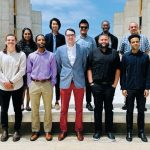 Rising Stars and DISCOVER programs provide new opportunities for trainees from underserved backgroundsThe Salk Institute recently hosted two inaugural events designed to enhance diversity within the scientific community: the Rising Stars Symposium and the Diverse Inclusive Scientific Community Offering a Vision for an Ecosystem Reimagined (DISCOVER) Symposium.
Rising Stars and DISCOVER programs provide new opportunities for trainees from underserved backgroundsThe Salk Institute recently hosted two inaugural events designed to enhance diversity within the scientific community: the Rising Stars Symposium and the Diverse Inclusive Scientific Community Offering a Vision for an Ecosystem Reimagined (DISCOVER) Symposium.






















































